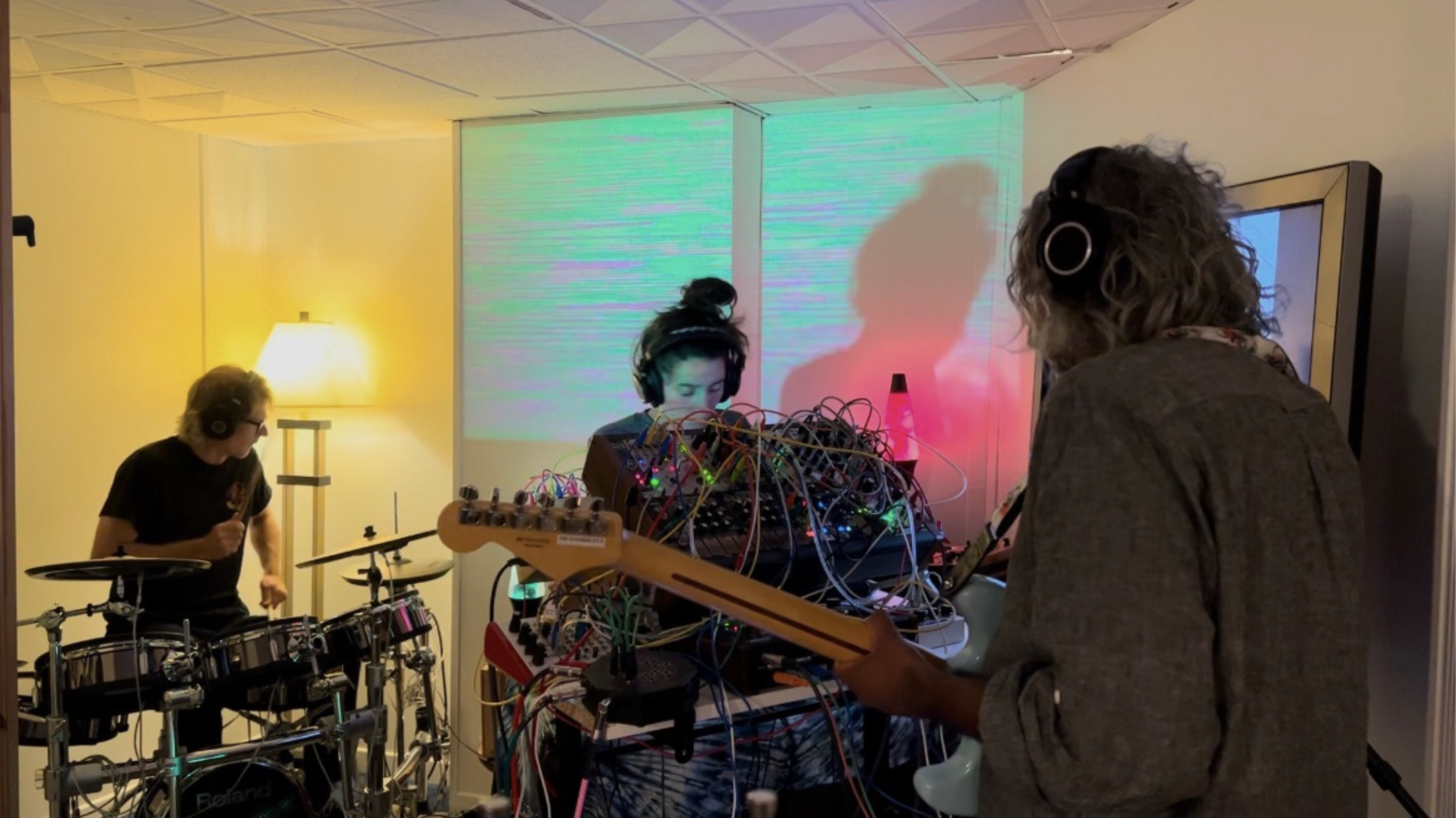The band is thrilled upon the release of their debut album on April 6.
arc is a local band composed of Stephen Venkatarangam, Adrian Aitken and Annabelle Brault who recently released their debut album to the public. Venkatarangam and Brault are also Ph.D. Candidates in Concordia’s INDI program.
When they first started out, the band didn’t set out with any specific instrumentation or even a set compositional process. Later on, Annabelle knew she would play a synth, Stephen would play the guitar and Adrian, digital drums.
The band members do not see themselves fitting in any specific genre of music. As their Bandcamp profile states, “arc blends the unpredictability of live modular synthesis with the warmth of traditional instruments, crafting spontaneous, one-time-only soundscapes.” The band is “a sonic dream collective mashing modular synth, ambient, IDM, psych rock, contemporary classical, raga and post-rock for your listening/visual experiences.”
With songs running from five to nine-minutes-long, the five-track project was created by recording live improvisations. Such recordings captured in the process reflected musical moments like a slow-building theme that evolves into something new. “We felt the songs on the album captured this ‘arc,’” expressed Venkatarangam—hence the album name.
A core element of the creative process was the incorporation of modular synths, which are instruments where you pick and choose different components to create your own instrument. This granted the band more freedom regarding desired tones and unique sequences or samplers. On top of the modular synth, arc blends more traditional instruments like flutes, guitars, analog synthesizers and drums. The band does not use pre-recorded tracks or even laptops for that matter (other than to capture the recording). As for the songwriting process, different members will take turns starting and then co-creating will happen spontaneously.
The shortlisted group of their improvisations represented a snapshot of ever-evolving soundtracks: “A different person begins with a musical theme on whatever instrument they feel works, and the other two of us add to this theme and we see where it goes from there,” Venkatarangam explained.
The band believes that nature counts as a source of energy and inspiration for them, which is reflected in their album cover. The visual is a photo of a stream behind Stephen and Annabelle’s place in Boucherville. “It was run into a video synth, another aspect of our collective and then made into the cover. I guess it symbolizes a snapshot of our collective stream of creation, which is what our recordings are,” Venkatarangam said.
The making of the album was filled with memorable moments for the band, like the time when Annabelle was taking birdsong samples in India while creating wind sounds on her modular synth. “This created a unique atmosphere which allowed us to all add our own sonic textures and beats to it—it felt special creating it,” said Venkatarangam.
But the birth of the album came with its challenges. The band would sometimes find themselves struggling with creating and recording music on the spot. It also took a little while for them to find a consistent sound, learn how to record their tracks and learn how to play and incorporate their various instrumentations—particularly the modular synths.
Overall, arc’s sound on their debut album makes them a bit of a hybrid between a live band and electronic, ambient or IDM music. They incorporate a live electronic drummer, modular synths with unique sounds to create music that is moving forward, embracing technology, without being overly polished and produced. “We feel the music is still engaging and meaningful to us and try not to be overly self-indulgent or pretentious (i.e. shocking the listener) but authentic despite our experimental nature,” added Venkatarangam.
arc wishes to create soundscapes that allow the listeners to generate their own personal meanings. The members also noted that their songs reflect what is going on in their personal lives, and leave a glimmer of hope or a moment of respite, reflection and/or positivity as they navigate the human experience in these uncertain times.
“We think this album reflects us finding ourselves as a band, getting on the same page together and continuing with our creative arc,” expresses Venkatarangam. Although a debut album is a significant milestone, the members believe that it also just marks the beginning of them. “We hope we join the list of artists that bring a human element to the many genres we fit into,” shared Venkatarangam.
If you’re curious about arc, don’t forget to catch them playing shows this year, like at Brain Freeze Montreal (a local electronic festival series) on Sept. 11.
You can also check out their live video-synthesis projections filmed at their home studio and shared via their social media at @arcbandmtl or their YouTube channel @arcband8649.
